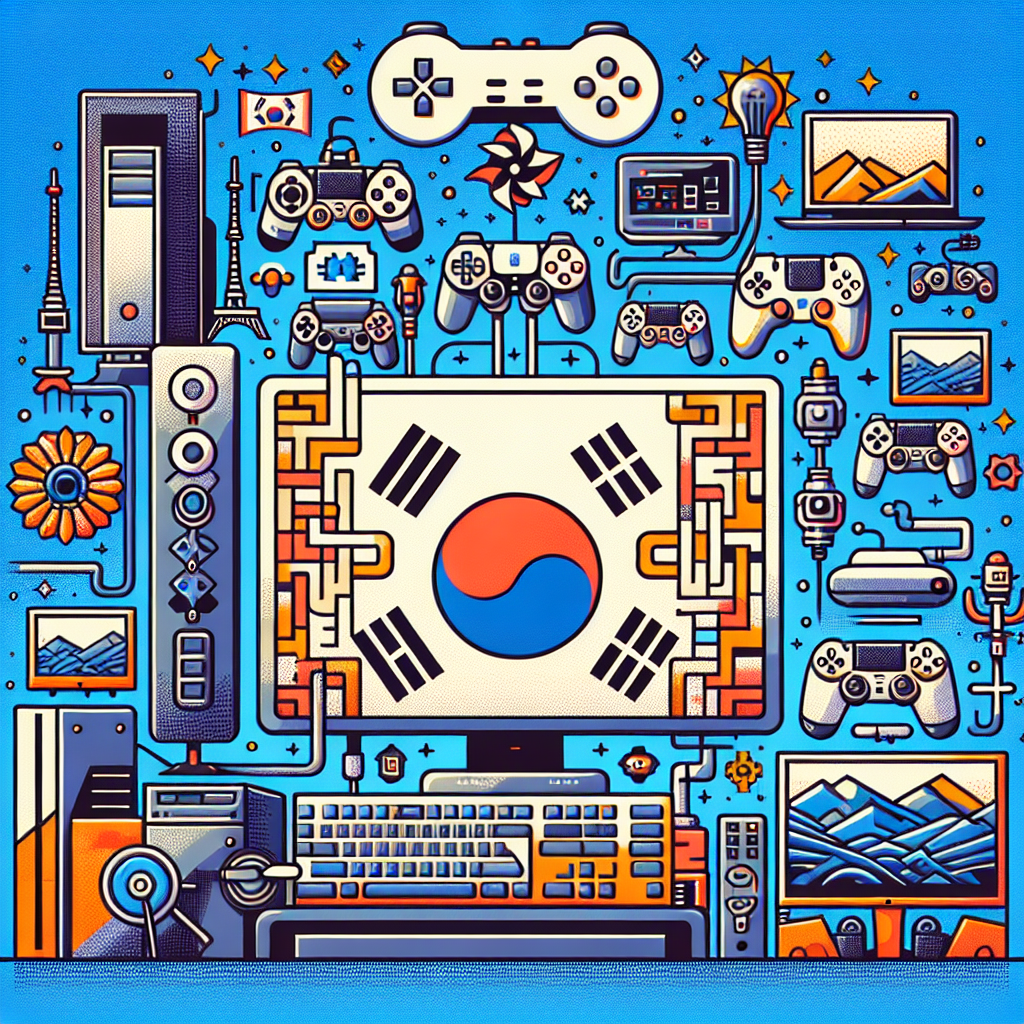Behind the Screen: A Deep Dive into South Korea’s Gaming Industry Giants
Introduction
South Korea’s gaming industry has evolved into a global powerhouse, both in terms of revenue and cultural influence. As a country known for its technological advancements and high-speed internet, South Korea has become synonymous with gaming, generating iconic titles and nurturing remarkable esports talent. This article explores the giants of the South Korean gaming industry, delving into their history, impact, and what sets them apart on the world stage.
A Brief History of Gaming in South Korea
The roots of gaming in South Korea can be traced back to the late 1990s, with the advent of the internet and online gaming. During this period, PC bang (internet cafes) emerged as popular social hubs for gamers, fostering community and competition. The initial success of games like StarCraft transformed South Korean gaming culture, paving the way for esports and an ever-expanding gaming market.
The mid-2000s saw the rise of mobile gaming, coinciding with the widespread ownership of smartphones, leading to the rapid growth of companies focusing on mobile platforms. Today, South Korea’s gaming industry is valued at over $10 billion, with an impressive growth trajectory that continues to attract global attention.
Key Giants in the Industry
1. NCSOFT
Founded in 1997 by Kim Taek-jin, NCSOFT is a prominent name in the gaming sector, known primarily for its MMORPGs (Massively Multiplayer Online Role-Playing Games). Lineage and Guild Wars are among its hallmark titles, with Lineage in particular fostering a robust community in South Korea and beyond.
NCSOFT’s innovative approach has also led to the development of Blade & Soul and Aion, both contributing to the company’s reputation as an industry leader. The company has invested heavily in mobile games as well, launching successful titles like Lineage 2 Revolution.
2. Blizzard Entertainment (Korea)
Although technically an American company, Blizzard Entertainment has a large following and significant impact in South Korea. The launch of StarCraft in the late 1990s solidified Blizzard’s status in South Korean gaming culture. The subsequent growth of esports, particularly with titles like Overwatch and League of Legends, has cemented the company’s foothold in the Korean market.
Blizzard’s commitment to localizing its games for Korean players and supporting the esports scene through tournaments has fostered a loyal community, making it a key player in the industry.
3. Riot Games
Best known for its flagship game League of Legends, Riot Games has played a crucial role in popularizing esports in South Korea. The country’s professional League of Legends scene is one of the most competitive in the world, with teams like T1 and Gen.G consistently dominating international tournaments.
Riot’s focus on community engagement and ongoing game updates has allowed it to cultivate a passionate player base. Moreover, the annual League of Legends World Championship in South Korea ensures that the country remains a focal point for competitive gaming.
4. Krafton
Initially known as PUBG Corporation, Krafton is the developer behind the global phenomenon PlayerUnknown’s Battlegrounds (PUBG). Founded in 2018, Krafton’s rise has been meteoric, capitalizing on the battle royale genre’s immense popularity.
Krafton’s focus on high-quality production and immersive gameplay has garnered awards and a strong global presence. The company has also expanded its portfolio with titles like Tera and the highly anticipated New State Mobile, aiming to push the boundaries of gaming further.
5. Netmarble
Netmarble has established itself as a leader in mobile gaming with blockbuster titles such as Lineage 2: Revolution, Blade & Soul Revolution, and The Seven Deadly Sins franchise. Founded in 2000, its diverse gaming catalog spans genres from role-playing games to action and strategy.
The company’s success can be attributed to high production values, engaging gameplay, and strategic collaborations with popular IPs (intellectual properties), which have helped capture a broader audience.
Challenges and Future Prospects
Despite its successes, South Korea’s gaming industry faces a range of challenges. Regulatory scrutiny surrounding gaming addiction has led to debates over game mechanics and age restrictions. Moreover, the industry must navigate shifting consumer preferences and increasing competition from international developers.
However, the future remains bright. With advancements in virtual reality (VR) and augmented reality (AR), plus the growing popularity of cloud gaming, South Korean companies are poised to innovate further. Additionally, the rise of blockchain technology in gaming presents new opportunities for monetization and user engagement.
Conclusion
Behind the screens of South Korea’s gaming giants lies a story of innovation, community, and cultural evolution. These companies not only define the gaming landscape in South Korea but also have a profound influence on global gaming dynamics. As industry leaders continue to push boundaries, the excitement for what is next in South Korea’s gaming industry only grows. The world watches with bated breath as these titans continue to shape the future of digital entertainment.




